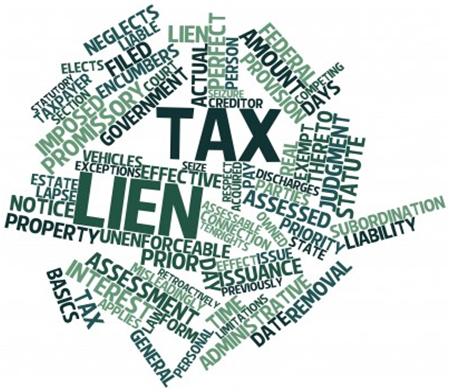Last Updated on Feb 28, 2020 by James W
A job loss, unexpected medical expenses, divorce or other hardship can place a strain on your wallet and make tax payment impossible. However, if you don’t negotiate a payment plan with the IRS, the agency may place a lien on your assets. These assets can include real estate, personal property and financial assets like your brokerage account.
Fortunately, a lien doesn’t have to stay on your record forever thanks to new “Fresh Start” regulations from the IRS. You can speak to a tax professional that has graduated from traditional or online graduate tax programs if you need assistance, but you can also handle the process on your own. Follow these suggestions to have a lien withdrawn from your records.
What Is a Lien?
The IRS defines a lien as a legal claim against your property that is made when you fail to pay taxes. Before the IRS places a lien on your property, it will assess the amount of tax you owe, and send you a Notice and Demand for Payment. If you fail to pay the bill in time, then the IRS usually proceeds with a lien. Generally, you have to owe $10,000 or more thanks to Fresh Start guidelines, but the government can file a lien for lower amounts if it believes the circumstances warrant more severe actions.
A lien will attach to all of your current assets and will also apply to future assets that you acquire. You may have difficulty obtaining credit because a lien will show up on your credit report. If the IRS places a lien against your business, then all of your business assets are attached, including your accounts receivable. You may file for bankruptcy, but the process doesn’t always discharge your tax debt or allow you to remove a lien.
If you have to sell your property but can’t afford to pay your tax bill, you can file for a Discharge of Property (Publication 783) to ask the IRS for permission to sell the asset without the lien. You can also apply for a Certificate of Subordination of Federal Tax Lien (Publication 784), which gives other creditors rights to your assets ahead of the IRS. The best solution, however, is to pay your bill and have the lien withdrawn from your records.
Paying Your Tax Debt
You may feel you don’t owe what the IRS is charging you. In that case, speak to a tax attorney. If you know that you owe the money and can’t pay the bill in full, you do have several options available:
- Ask for a settlement. In some cases, the IRS will settle your debt for less than you owe. This agreement is called an Offer in Compromise. However, if you negotiate a settlement, then you can’t have the lien withdrawn from your records.
- Agree to a Direct Debit Installment Agreement. Pay the IRS a one-time fee of $52 and have a minimum monthly payment taken directly from your bank account, then applied to your tax bill. If you’ve established a Direct Debit Installment Agreement and have successfully made at least three payments, then the IRS usually withdraws the lien.
- Pay the bill some other way. Sometimes, charging your tax debt to your credit card can actually save you money on IRS penalties and interest. Explore other ways of getting funds if you have available options.
Withdrawing the Lien
If you fully pay your tax bill, then the IRS must release the lien in 30 days; however, a released lien still appears on your credit report and can affect your credit for years. The IRS can also withdraw the lien completely if improving your credit will assist with future tax compliance. A withdrawal can occur whether you’ve paid the bill in full or you’re enrolled in Direct Debit. Speak to the Taxpayer Advocate about your options.
You can also withdraw a lien from public records, like housing records, once the lien is paid in full. Ask an IRS representative to either send a Release of Lien to you or sign the form in the presence of a notary public. Then, pay a small fee to file the form at your municipal recorder’s office. Keep a copy of the form for your records, in case you need to sell the asset or obtain credit later.
About the Author: Gillian Lewis is a tax professional who volunteers in her city to help low-income citizens fill out their tax returns. She writes income tax brochures and tax-related articles.





